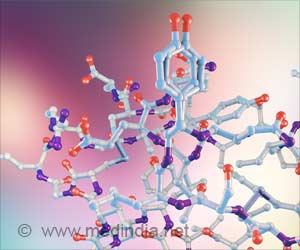UK’s doctors are angry. They are resorting to the prescription of a cheap but untested drug to prevent blindness.
UK’s doctors are angry. They are resorting to the prescription of a cheap but untested drug to prevent blindness. This is in rebellion to Pharma giants which market licensed drugs such as Lucentis , which are way too costly for use.
Hence, primary care trusts are giving NHS doctors the go signal to use tiny shots of a similar drug, Avastin, which is marketed for bowel cancer, but costs a fraction of the price. Incidentally, Avastin is widely used for eye complaints in the United States.A call from the former health secretary, Patricia Hewitt, for Avastin's manufacturer to put the drug through trials for wet age-related macular degeneration has gone unheeded. The NHS is now funding a groundbreaking trial, which will compare Avastin directly with Lucentis. Genentech manufactures both drugs.
These moves appear to be the tip of the iceberg. They represent the first real challenge in Britain to high prices set by drug companies. There is growing unease at the cost of new drugs and these have led to the banning or rationing of some medicines in the NHS by the National Institute for Health and Clinical Excellence (Nice). While these companies say they need billions of dollars in sales to recoup their research and development costs, critics accuse them of profiteering.
Meanwhile, in the developing world, sky-high drug prices have brought the pharmaceutical industry into disrepute, forcing their prices down and leading to successful campaigns that allow generic copycat companies to sell cheap versions of drugs.
Each year, almost 26,000 people develop wet age-related macular degeneration (AMD). This is a condition that can make them blind within months. Lucentis can save and even improve their vision - but Genentech, the manufacturers, and Novartis, who market it in the UK, have set the price so high (£761.20 per injection) that Nice has said it should only be used in a worst case scenario and then only when patients have already lost the sight of one eye.
Shocked by these developments, a number of ophthalmic surgeons in the UK are now offering treatment with Avastin, a very similar but bigger molecule also made by Genentech but licensed for bowel cancer. One bowel cancer phial can be split into many tiny doses suitable for injection into the eyes, costing as little as £10 a shot. In spite of the absence of trials or a license, the use of Avastin has spread through the US and there is now data on more than 7,000 patients. It has also been used by some private clinics in the UK.
Advertisement
"If you have only got one eye affected, the other eye might get something else the next year. By the time you come to treat the wet eye, it has gone too far. We think that is not ethically acceptable”, he adds.
Advertisement
Moorfields eye hospital in London, the most famous in the country, is also exploring a scheme to use Avastin on the NHS. But the stakes are so high for the NHS that it is taking the unprecedented step of funding a trial, which will directly compare the use of Avastin and Lucentis in wet AMD.
Source-Medindia
ANN/B








